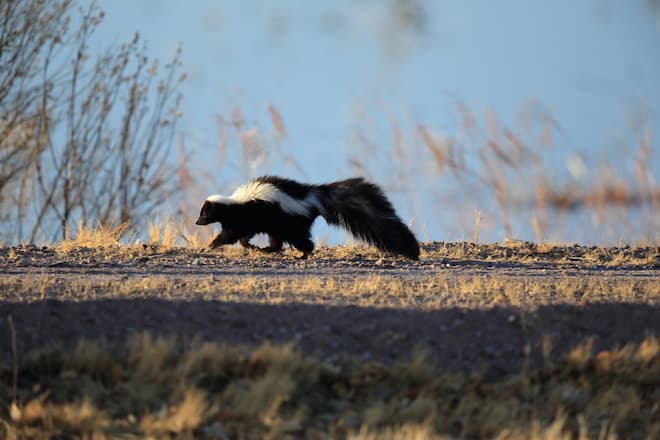Skunks and their impact on my lawn Skunks can pose a significant challenge when they invade lawns, affecting their appearance due to their constant search for grubs. These animals dig holes in pursuit of these grubs, utilizing their highly sensitive noses to unearth them up to three inches deep in the ground. Furthermore, skunks tirelessly create burrows around the lawn as a means to protect themselves from external factors. This can be particularly troublesome for individuals with flower beds, fruits, and vegetables, as these areas serve as attractive food sources and potential habitats for insects.
if you have skunks on your lawn, then make sure to hire qualified and experienced skunk experts from Skunk Control
Skunks tend to be more active during the autumn season. Due to their poor climbing abilities, they keep their noses close to the ground. Their diet encompasses a variety of food, resembling that of another urban nuisance, the raccoon. Skunks primarily feed on ground insects like grubs and ground worms. However, they are not averse to consuming other creatures such as crawfish, small birds, eggs, and even frogs. Additionally, they display a fondness for fruits like grapes, cherries, strawberries, and others.
Using animal repellants as a deterrent Employing animal repellants can be an effective method to prevent animals from disturbing your lawn. A wide range of repellants are available in the market, including natural and chemical-based products. However, caution should be exercised as the efficacy of these products may not always live up to their claims. Numerous websites offer home remedies, although their effectiveness may vary significantly depending on the application method and location.
Securing your lawn with barricades Installing fencing around your lawn can physically impede animals from digging it up, providing a barrier to access. Light and efficient alternatives, such as deer fences, require minimal installation time. Alternatively, solid wooden fences not only deter animals but can also enhance the aesthetic appeal of your lawn. Electric fences, although expensive and demanding in terms of maintenance, effectively prevent animals from digging up your lawn.
Reducing the presence of grubs By reducing the population of grubs in your lawn, you can discourage animals from frequenting it for this food source. Consider incorporating beneficial “Nematodes” into the soil to prevent access to grubs. These small insects, which parasitize plants, effectively eliminate various soil-dwelling pests, including grubs. Consequently, using beneficial nematodes can help decrease the grub population in your lawn’s soil.
Professional wildlife technicians for assistance Highly skilled and experienced wildlife technicians specialize in the removal of diverse wildlife animals. With more than a decade of expertise in the wildlife control industry, these licensed and insured professionals have dealt with numerous challenging cases.

